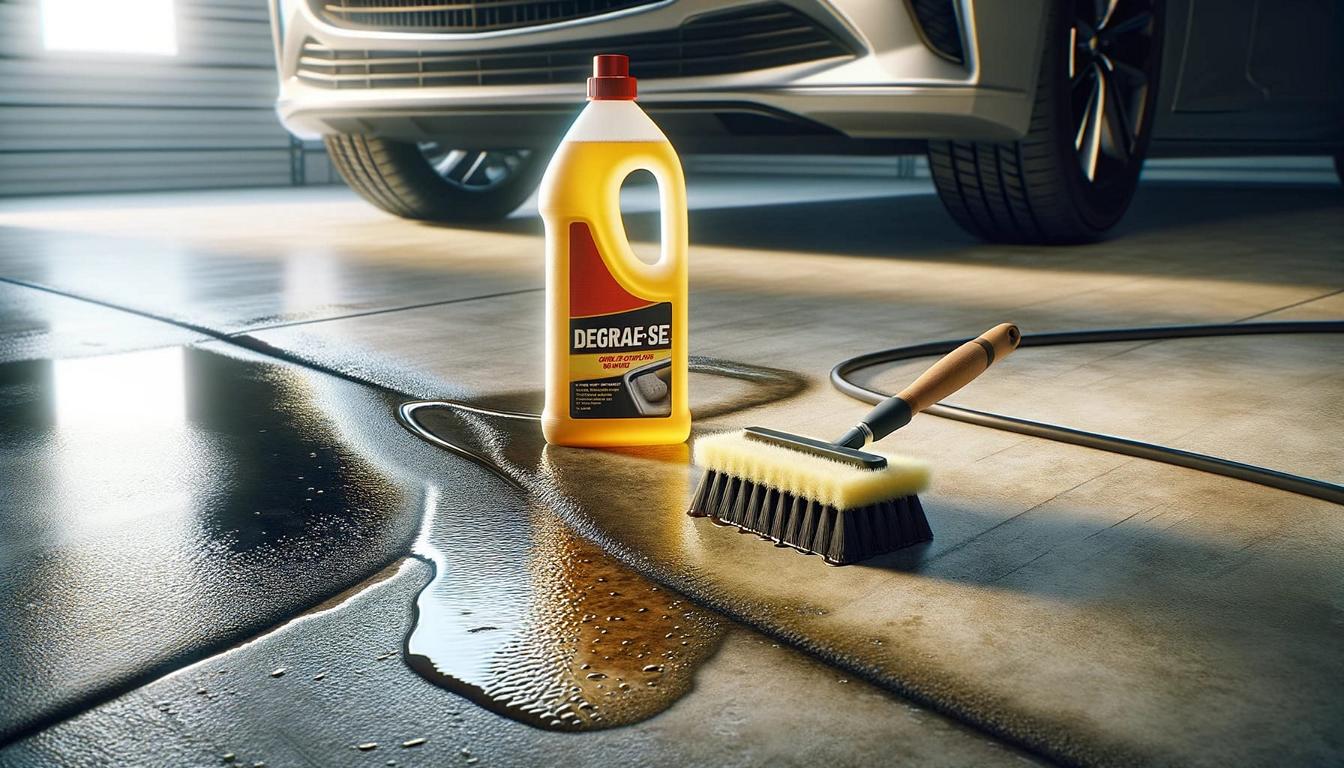For any automotive enthusiast or professional mechanic, dealing with engine oil stains is an all-too-familiar challenge. These stubborn stains can quickly turn a pristine garage or workspace into an unsightly mess, leaving behind unsightly marks that can be difficult to remove. However, with the right techniques and products, you can banish those pesky engine oil stains and restore your garage to its former glory. In this comprehensive guide, we’ll explore proven methods to tackle engine oil stains on various surfaces, ensuring a spotless and inviting space for all your automotive projects.
Understanding Engine Oil Stains
Before delving into the removal techniques, it’s essential to understand the nature of engine oil stains. Engine oil is a complex mixture of hydrocarbons, additives, and other compounds designed to lubricate and protect your vehicle’s engine. When spilled or leaked, these oils can quickly penetrate porous surfaces like concrete, leaving behind stubborn stains that can be challenging to remove. The longer engine oil stains are left untreated, the harder they become to eliminate, as the oils have more time to set and bond with the surface. Additionally, the type of surface and the age of the stain can also affect the effectiveness of different cleaning methods. By understanding these factors, you can better tailor your approach to banishing engine oil stains for good.
Removing Engine Oil Stains from Concrete
Concrete floors are a common surface in garages and workshops, making them particularly susceptible to engine oil stains. Here are some proven techniques to tackle these tough stains:
- Absorbent Materials
For fresh engine oil stains, acting quickly is key. Immediately covering the spill with an absorbent material like cat litter, sawdust, or oil-absorbent pads can help soak up the excess oil, preventing it from penetrating deeper into the concrete. - Degreasing Agents
Once the excess oil has been absorbed, it’s time to tackle the remaining stain. Degreasing agents specifically formulated for concrete surfaces can be highly effective in breaking down and lifting engine oil stains. Look for products containing strong solvents like d-limonene or sodium hydroxide. - Pressure Washing
For stubborn engine oil stains that have set in, pressure washing can be a game-changer. The high-pressure water jet can help dislodge and remove the stain from the concrete’s porous surface. However, be cautious when using pressure washers, as they can potentially damage the concrete if not used properly.
Tackling Engine Oil Stains on Asphalt
Asphalt surfaces, such as driveways or parking lots, can also fall victim to unsightly engine oil stains. Here’s how to tackle these stains effectively:
- Absorbent Materials and Detergents
As with concrete, using absorbent materials like cat litter or sawdust can help soak up fresh engine oil stains on asphalt. Follow up by applying a heavy-duty detergent or degreaser and scrubbing the area with a stiff-bristled brush. - Poultice Method
For older, set-in engine oil stains, the poultice method can be highly effective. This involves creating a paste-like mixture of absorbent materials like kitty litter or sawdust and a solvent-based degreaser. Apply the poultice directly to the stain, cover it with plastic, and let it sit for several hours or overnight. The poultice will help draw the oil out of the asphalt surface.
Removing Engine Oil Stains from Garage Floors
Garage floors, whether coated or uncoated, can be particularly challenging when it comes to engine oil stains. Here are some proven techniques to tackle these tough spots:
- Baking Soda and Dish Soap
For light engine oil stains on garage floors, a simple mixture of baking soda and dish soap can work wonders. Create a thick paste by combining the two ingredients and apply it directly to the stain. Let it sit for several hours, then scrub and rinse thoroughly. - Trisodium Phosphate (TSP)
Trisodium phosphate (TSP) is a powerful degreaser that can be effective in removing engine oil stains from garage floors. Be sure to follow the manufacturer’s instructions and safety precautions when using TSP, as it can be harsh on surfaces and skin. - Commercial Degreasers
For heavily stained or coated garage floors, commercial degreasers specifically formulated for automotive use may be necessary. These products often contain strong solvents and should be used with caution, following all safety instructions and ensuring proper ventilation.
Removing Engine Oil Stains from Clothing and Upholstery
Accidents happen, and sometimes engine oil stains can find their way onto clothing or upholstery. Here’s how to tackle these tough stains:
- Pre-treating with Detergent
As soon as possible, blot the engine oil stain with a clean cloth or paper towel to remove any excess oil. Then, apply a heavy-duty laundry detergent or pre-treatment solution directly to the stain and let it sit for several minutes before washing. - Solvent-Based Cleaners
For stubborn engine oil stains on clothing or upholstery, solvent-based cleaners like dry-cleaning solvents or spot removers can be highly effective. Be sure to test these products on a small, inconspicuous area first to ensure they won’t damage or discolor the material. - Professional Cleaning Services
In some cases, particularly for delicate fabrics or upholstery, it may be best to seek the services of a professional cleaner. They have access to industrial-strength cleaning solutions and techniques that can effectively remove even the most stubborn engine oil stains.
Safety Precautions
When working with degreasers, solvents, and other cleaning products, it’s essential to prioritize safety. Always read and follow the manufacturer’s instructions carefully, wear appropriate protective equipment like gloves and eye protection, and ensure proper ventilation to avoid inhaling toxic fumes. Additionally, be cautious when using pressure washers or scrubbing vigorously, as these actions can potentially damage surfaces or cause injury if not handled properly.
Conclusion
Engine oil stains can be a frustrating and unsightly problem, but with the right techniques and products, you can banish them from your garage or workspace for good. By understanding the nature of these stains and tailoring your approach to the specific surface and severity of the stain, you can effectively tackle even the most stubborn engine oil stains. Remember, prevention is key when it comes to engine oil stains. Regularly maintaining your vehicles, using drip pans or absorbent mats, and addressing spills or leaks promptly can go a long way in minimizing the occurrence of these pesky stains in the first place. With a spotless garage or workspace, you’ll not only enjoy a more pleasant and inviting environment but also take pride in maintaining a professional and well-kept space for all your automotive projects.
 tuningblog.eu Euer Magazin rund um Tuning am Auto
tuningblog.eu Euer Magazin rund um Tuning am Auto

